
Data from the phase 3 RATIONALE 305 trial support the biologics license application for tislelizumab plus chemotherapy in advanced unresectable or metastatic gastric or gastroesophageal junction adenocarcinoma.

Your AI-Trained Oncology Knowledge Connection!


Data from the phase 3 RATIONALE 305 trial support the biologics license application for tislelizumab plus chemotherapy in advanced unresectable or metastatic gastric or gastroesophageal junction adenocarcinoma.
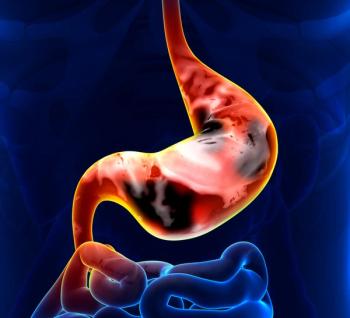
Over half of the patients with HER2-negative gastric or gastroesophageal junction adenocarcinoma achieve a major pathological complete response following treatment with sintilimab plus FLOT in a phase 2 trial.
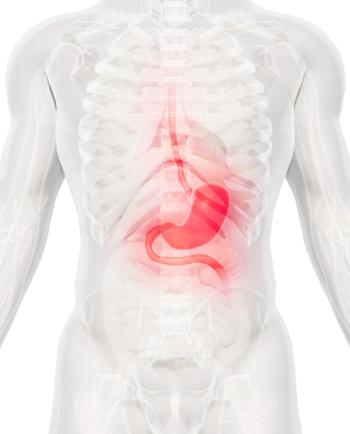
Findings from the FRUTIGA study support fruquintinib plus paclitaxel as a promising second-line treatment for those with advanced gastric or gastroesophageal junction adenocarcinoma following prior chemotherapy.

Risk-reducing total gastrectomy is associated with short-term and long-term physical and emotional AEs in patients with pathogenic or likely pathogenic germline CDH1 P/LP variants.
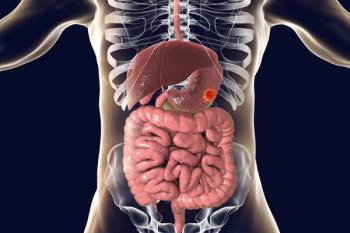
Investigators observe a benefit with durvalumab plus neoadjuvant chemotherapy among subgroups of patients regardless of microsatellite instability status in the phase 3 MATTERHORN trial.

Combining ASKB589 with capecitabine, capecitabine, and sintilimab leads to no treatment discontinuation due to adverse effects among patients with gastric or gastroesophageal junction cancer in a phase 1/2 trial.

The FDA cannot approve the application for zolbetuximab in advanced or metastatic gastric or gastroesophageal junction adenocarcinoma due to unresolved issues following a pre-license inspection of a third-party manufacturing site.

In Europe, pembrolizumab is now available as a treatment in combination with fluoropyrimidine-/platinum-containing chemotherapy for HER2-negative gastric or GEJ adenocarcinoma, as well as in combination with gemcitabine/cisplatin for locally advanced biliary tract carcinoma.

Approval of PD-L1 IHC 22C3 pharmDx may also identify patients with non–small cell lung cancer and other malignancies who may benefit from treatment with pembrolizumab.

Only patients with PD-L1–positive tumors may receive treatment with pembrolizumab plus trastuzumab and chemotherapy for HER2-positive gastric or gastroesophageal junction adenocarcinoma following the FDA’s amendment.
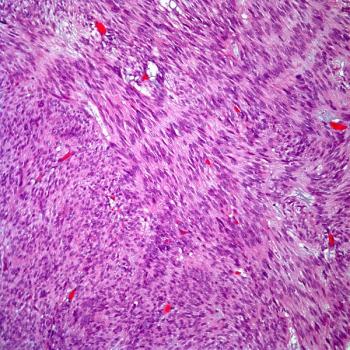
CHM 2101 will be assessed as part of a phase 1A/B clinical study in a population of patients diagnosed with advanced colorectal cancer, gastric cancer, and neuroendocrine cancer.

CMG901 demonstrated a well-tolerated safety profile in patients with CLDN18.2-positive, advanced gastric/gastroesophageal junction cancer.
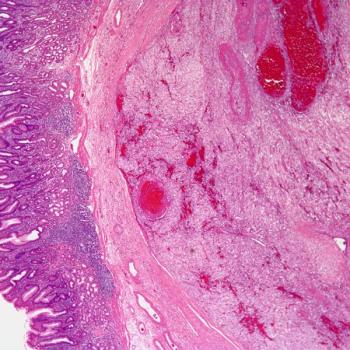
Pembrolizumab appears to improve overall survival vs placebo when added to trastuzumab and chemotherapy among patients with metastatic HER2-positive gastric or gastroesophageal junction cancer.

Adding durvalumab to standard-of-care chemotherapy appears to improve downstaging in patients with resectable gastric cancer and gastroesophageal junction cancer in the phase 3 MATTERHORN study.

Two phase 2 studies are assessing the efficacy of BDC-1001 in several disease states, including colorectal, gastroesophageal, endometrial, and breast cancer.

Combining regorafenib with nivolumab and chemotherapy appears to improve progression free survival at 6 months among those with advanced esophagogastric adenocarcinoma.

Data from the phase 3 KEYNOTE-811 trial highlight a trend towards improved overall survival among patients with HER2-positive, PD-L1–positive advanced gastric or gastroesophageal junction adenocarcinoma receiving pembrolizumab, trastuzumab, and chemotherapy.
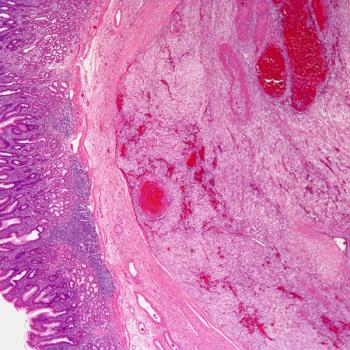
Phase 2 data support administering trastuzumab in combination with ramucirumab and paclitaxel for patients with HER2-positive gastric or gastroesophageal junction cancer.

Findings from the phase 3 KEYNOTE-811 trial support the CHMP’s recommendation to approve pembrolizumab plus trastuzumab in HER2-positive advanced gastric or gastroesophageal junction adenocarcinoma.

The marketing authorization application for this first-in-class agent is based on data from the phase 3 SPOTLIGHT and GLOW trials; a recommendation is expected in 2024.

The FDA sets a Prescription Drug User Fee Act date of January 12, 2024 for the biologics license application for zolbetuximab in the management of Claudin 18.2-positive advanced gastric or gastroesophageal junction adenocarcinoma.
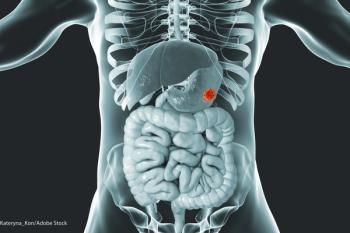
Topline data from the phase 3 KEYNOTE-585 trial, evaluating pembrolizumab in gastric and gastroesophageal junction adenocarcinoma, show a better rate of complete response following the experimental regimen vs chemotherapy alone.

Combining pembrolizumab with trastuzumab and chemotherapy did not raise any new safety signals among patients with HER2-positive advanced gastric or gastroesophageal adenocarcinoma in the phase 3 KEYNOTE-811 trial.

Medicaid expansion may help overcome inequities in access to care for pancreatic and gastric cancers, with notable benefit in Black patients, according to an expert from The University of Texas MD Anderson Cancer Center.

Claudin 18.2–targeting antibody-drug conjugate ATG-022 is under assessment as part of the phase 1 CLINCH study in patients with advanced or metastatic solid malignancies.